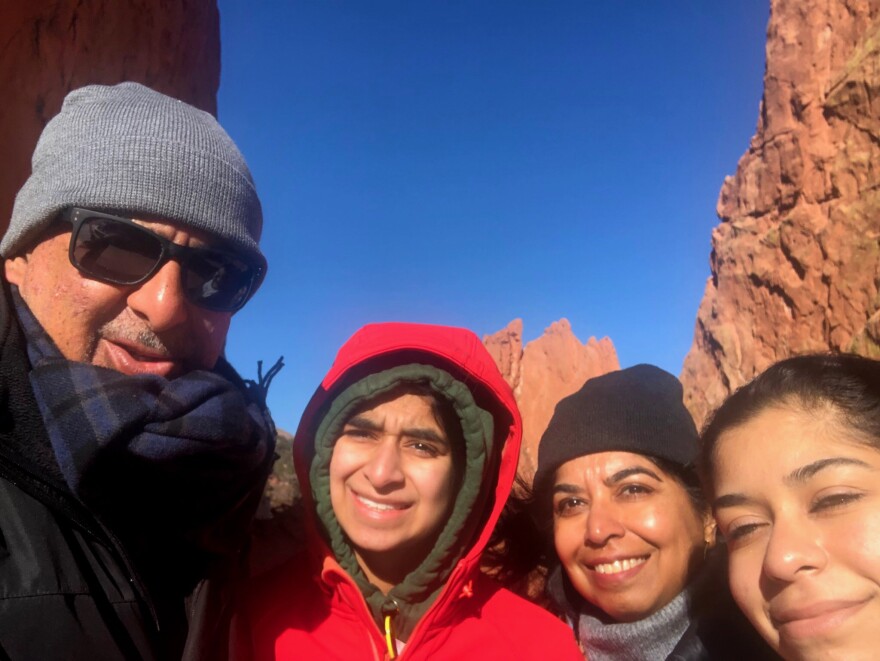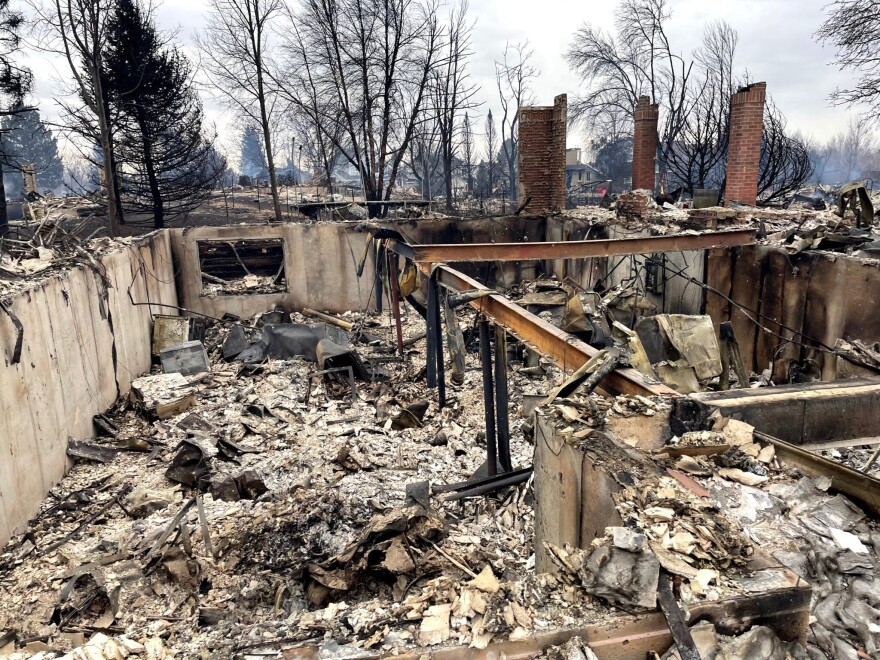Boulder County residents who lost everything in the Marshall Fire are now dealing with the complicated aftermath of putting their lives back together, which includes filing insurance claims, and sometimes compiling detailed inventories of belongings that were destroyed.
“We could really use a catastrophe doula, so to speak,” said Jenny Zirul, who lost her home in Louisville. “Everybody’s insurance is different, everyone’s process is different.”
Along the way, Zirul has discovered a handful of insurance issues, mainly that her family is underinsured for everything from debris removal to rebuilding.
“But the other daunting thing is, you know, insurance wants pictures and filming of your home and every list of every single thing you owned,” Zirul said. “If you can put down ‘I had a Black & Decker toaster purchased from Macy's with, you know, the glow-in-the-dark light on it.’ And then depending on the insurance company and where you're at, they may start to debate some of those items and depreciation and how much they're really worth today.”
State law requires that insurance companies pay out at least 30% of the policy’s contents coverage. Some, like Zirul’s, offer a much higher rate up front, but getting compensated beyond the original payment oftentimes requires a written inventory of belongings.
Smitha Sundaresan, who also lost her home in Louisville, has received a 30% payment from her insurance company.
“But having lived in the house for 17 years and trying to account for every single thing that's in the house is kind of impossible,” she said.
Figuring out how to correctly inventory family heirlooms from her grandmother feels particularly impossible.
“These were like really old antique pots and pans

made of brass. They are very special to her and she handed them down to us and I was hoping to hand down to my children,” said Sundaresan. “So things like that where what kind of value to put on it? It's like potentially 100 years old.”
These experiences are common for Marshall Fire survivors. The Colorado Division of Insurance has fielded almost 500 phone calls and emails related to the disaster. Representatives have met with hundreds more at the Disaster Assistance Center. According to a spokesperson, the top issues the office is hearing about are underinsurance, smoke and soot claims, additional living expenses and inventory list requirements.
Residents impacted by the fire describe this particular aspect of the aftermath as extremely stressful.
“The insurance person sort of tried to calm me down and say, ‘You can take it one day at a time, you can take it one room at a time.’ But, having gone through this big of a trauma, I'm doubting my memory and if I'll be able to recall everything I had,” Sundaresan explained. “So essentially, I feel like that's one of the biggest challenges we have from insurance right now.”
Insurance problems persist through multiple fires
“It raises red flags for us that people are dealing with the frustrations of the inventory requirements that some insurance companies are putting people through,” said Colorado Insurance Commissioner Mike Conway.
His office has been asking insurance companies to simplify the sometimes “needless hoops” of the reporting requirements, a conversation that has taken place after previous fires.
“I think whenever there's a disaster of this level of magnitude, you learn lessons from that disaster. And to some degree, it reinforces the issues that we likely knew were out there already,” Conway said. “Things like the inventory struggles that people have, things like the payment for their contents coverage… Some of those problems are easier to find solutions for than others.”
A bipartisan group of state lawmakers introduced a bill last month to address the inventory issue. Among other provisions, it would increase the minimum up-front reimbursement from 30% to 80%.
“The reason that we're bringing the bill is because of the East Troublesome Fire,” said Boulder Rep. Judy Amabile, one of the sponsors. “That was the motivator.”

That fire devastated Grand County in October of 2020; the legislation has been in the works since last summer. During a town hall in Grand County following the East Troublesome blaze, Amabile remembers hearing a story from a survivor about documenting a pair of socks. She has been having similar conversations since the Marshall Fire.
“Your home is really fundamental to your feeling of safety and well-being,” Amabile said. “And it's also the biggest investment you have and if it's underinsured or if you're having to do some epic battle to get what you are owed, that is incredibly traumatic on top of trauma.”
‘Make your inventory list’
Carole Walker, executive director of the Rocky Mountain Insurance Association, has had conversations with bill sponsors about how to streamline the inventory process and extend the period of time that homeowners can receive additional living expenses.
“There are concerns that HB-1111 in its current form would go well beyond claims settlement requirements in any other state,” Walker wrote in an email. “That includes the provision for 80% of contents payments upfront with no documentation for all homeowners in a declared loss fire disaster.”
She added that the legislation, if passed, could lead to an increase in premiums.
Many of the Marshall Fire survivors who are dealing with these issues right now urge homeowners to pay attention to their insurance policies well before a disaster.
“Let's face it, it's not something any of us really want to talk about or spend time on,” Zirul said.
Zirul has received the initial insurance check for her belongings as well a small amount of assistance from the Boulder Community Fund and the American Furniture Warehouse. She is working with an adjuster, someone who helps with the insurance process for a fee.
“For the regular consumer: make your inventory list. Get some pictures, some photos, some video of your belongings and the inside and outside of your home and have that saved in a cloud somewhere” Zirul said. “And then be meeting yearly with your insurance agent. I guess you're going to have to become knowledgeable “
Additional information
For people who have insurance questions: Colorado Division of Insurance Consumer Services Team: 303-894-7490 / 800-930-3745 / DORA_Insurance@state.co.us
A step-by-step guide for Marshall Fire survivors from the nonprofit United Policyholders: https://uphelp.org/disaster-recovery-help/marshallfire/
A primer on homeowners insurance from the industry group Rocky Mountain Insurance Association: http://www.rmiia.org/homeowners/Walking_Through_Your_Policy/Homeowners_Insurance_basics.asp
Resources for Boulder County: https://www.bouldercounty.org/disasters/wildfires/marshall/





